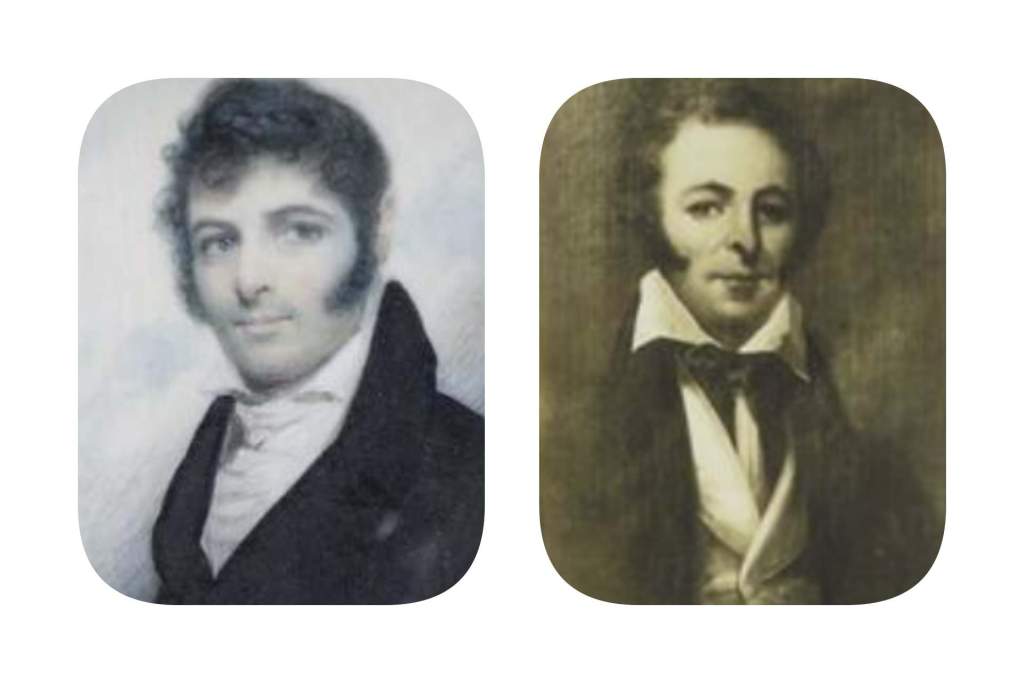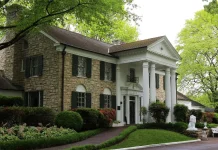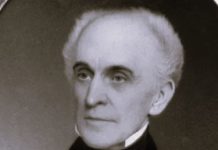Adam Lewis Bingaman was the most influential Whig leader in Mississippi. He was born on February 11, 1793. He had an exceptional distinction among statesmen in being a native of the state and a member of one of the oldest families. He recognized this fact in his plantation’s name, “Father Land.”
Adam Lewis Bingaman was of a family established in the Natchez district during the British period. Christian Bingaman received a grant from the Pensacola government of 600 acres on Coles Creek in 1777. In addition, several hundred acres were later granted to Alexander McIntosh. Which were acquired by Adam Bingaman, who led the Rebellion of 1781 and was imprisoned by the Spanish.
Adam Lewis Bingaman graduated from Harvard College and returned home to run the estates he succeeded in. In Boston, he met Julia Maria Murray, daughter of the poet, writer, and feminist Judith Sargent Murray. He married Julia Murray in Boston.
In 1814–15, he was one of the volunteers at Natchez, in the rifle company, for the defense of New Orleans, and was chosen first lieutenant. Subsequently, he entered politics and led the Whig, or Henry Clay, party. W. H. Sparks describes him as “a man of rare qualifications for a popular leader—highly gifted by nature in mind and personal appearance, which was most splendid and commanding, with a polished education and fascinating manners, and by nature an orator.”

Added to these advantages, he was a native of the state, a representative of great wealth, and had extensive family influence.” J. F. H. Claiborne says (Life and Times of Dale, 223) that he was a man of very superior and highly cultivated intellect, one of the best classical scholars in the state, of fine person and imposing manners, ambitious of distinction, yet ever scrupulous in his efforts to win it. He always occupied a high position in the public eye, but with less conscientiousness, he would have achieved the highest.
Personally, he was a favorite of the dominant party. There were occasions when a very narrow line of demarcation separated them, and he had only to cross it to be placed in power. He was his party’s candidate for speaker of the House in January 1833 but withdrew after nine ballots. Nevertheless, he was a prominent figure in a memorable session.
As chairman of the committee on other states’ memorials, relating to the conflict between Jackson and Calhoun, he reported resolutions in opposition to the doctrine of nullification. He also reported resolutions in conformity with the Whig Party principles. He was elected speaker of the house in December 1833 and held that office in the next session, 1835. He was elected, in 1832, to the Planters’ Bank board. In 1837, he was the only representative of the river counties who voted to admit the newly formed counties to representation.
Declaring that he had voted because it was a question of vast and enduring importance, he resigned, appeared before the people, and was defeated. But he was elected to the Senate and was president of that body from 1838–39, the second most important position after that of governor. In 1839, he was the Whig candidate for Congress and came close to winning.
After the Whig triumphs of 1837–38, he was proposed as the Whig candidate for United States senator. Bingaman was a famous horseman and the magnate of the famous St. Catherine race course. In January 1840, Bingaman’s speech to General Andrew Jackson at Natchez boosted his reputation as an orator. In 1843, he demanded the payment of state bonds.
A free black woman named Mary E. Williams was Bingaman’s lover, and she may have given him as many as six children: Frances Ann, wife of Pryor; Cordelia; Emilie; Marie Sophie Charlotte; James; and Henriette. Adam Lewis Bingaman died in September 1867 at 75.
Read More: The Lost Roanoke Colony







